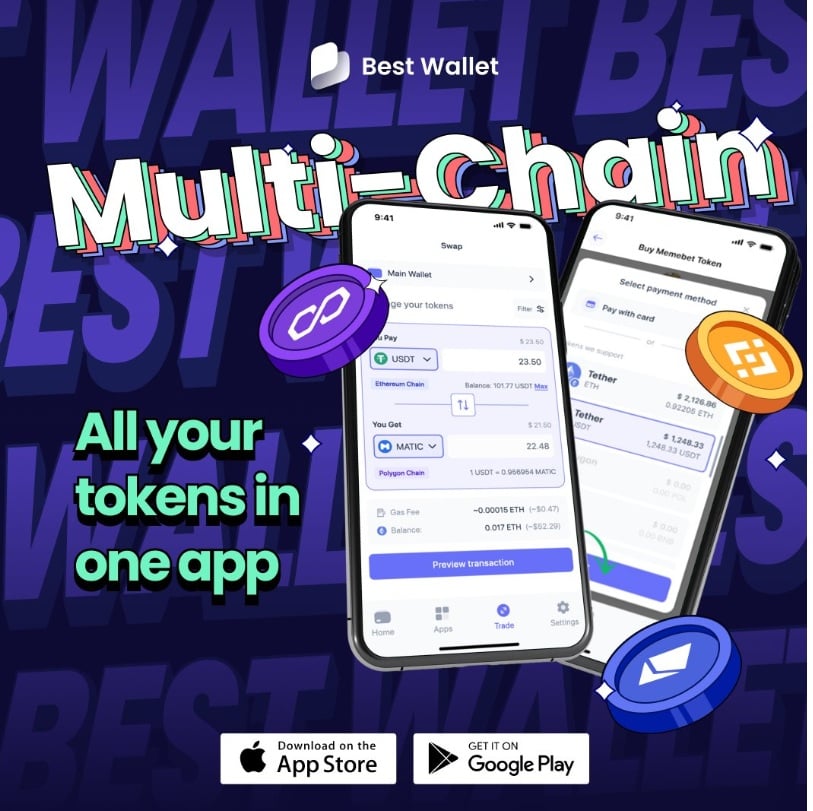JPMorgan has almost done a complete U-turn in its stance on cryptocurrency over the past year or so. In 2021 Jamie Dimon, CEO of JPMorgan Chase, famously likened Bitcoin to a “pet rock” calling it “worthless”.
Fast forward to today, and we’ve seen JPMorgan partner with Coinbase in July and now on November 12 they launched their own USD deposit token (JPMD) on Base, the Ethereum Layer 2 blockchain built within Coinbase.
This token is designed to facilitate transactions for institutional clients, so they haven’t gone full retail yet, but it’s heading in that direction. Quite the turnaround from four years ago.
What is JPMD?
The JPMD token differs from a stablecoin in so much as it’s not available for public purchase, it’s an internal deposit token designed to represent Dollars within JPMorgan for use by their institutional clients.
Due to the fast transaction speed of the Base network, clients would be able to send and receive funds instantly and 24/7. Banks and institutions will no longer be confined by working hours or unable to send payments on bank holidays.
It would basically make the digital payment system available at all times and borderless (within JPMorgan’s network). So it’s not permissionless in the way that Bitcoin is, however it’s fast and because it’s built on Base has very low fees.
In short, it speeds up payments for clients and makes business more efficient. JPMD is also designed for integration with smart contracts. JPMD was launched after a successful trial working with Coinbase and Mastercard.
What Does This Mean for the Future of Banking?
If more banks follow this system and use blockchain and internal deposit tokens, we could see a world where payments are always 24/7, with no delay for bank holidays and no delay for traditional working hours.
This could also encourage the development of new financial products that combine traditional banking with modern blockchain technology. This could eventually trickle down to retail use.
In terms of regulation, JPMD is still a liability of JPMorgan, which means it stays within compliance frameworks. This is one reason regulators are more comfortable with deposit tokens compared to stablecoins.
Choosing a Wallet that Supports Base
As major banks, such as JPMorgan, position themselves using the Base blockchain, individual users may want to gain first mover advantage by choosing a wallet that already supports the Base network.
It’s likely that JPMorgan using this network will cause it to grow, and if other banks follow suit it could be very bullish for adoption of the Base ecosystem. Moreover, if Base one day launches its own token, it will likely reward those who are already participating in the network.
Users will need a secure and easy-to-use wallet that lets you buy and hold assets on this chain, as well as the Ethereum network, to take full advantage of the expanding capabilities.
One of the few options that excel in this aspect without sacrificing accessibility and security is Best Wallet. A non-custodial, multichain wallet, Best Wallet went live a little over a year ago but it quickly positioned itself as one of the most popular storage solutions around.

Unsurprisingly, several factors contributed to its rapid rise, such as its self-custodial, security-first architecture, ease of use, multichain functionality, rich set of features, and the fact that people can access everything they need within the app without undergoing KYC checks.
With its non-custodial design, users no longer outsource the responsibility of managing their assets. Therefore, they are not at the mercy of withdrawal delays, frozen accounts, or exchange hacks. The wallet even goes further by supporting tools like encryption, DeFi integrations, and privacy-centric features such as biometric logins, ensuring that users can manage their assets securely.
Through the app, users can buy, sell, and swap thousands of cryptocurrencies using their credit cards. It also prioritizes low fees and competitive swap rates to help users maximize their returns.
Currently, it supports Base alongside major blockchains like Polygon, Bitcoin, Binance Smart Chain, Ethereum, and Solana. This means users don’t need to create a separate wallet to access their assets on Base. The platform’s Upcoming Tokens feature is another highlight, granting early access to promising presale cryptocurrencies – a very rare perk for a Base wallet.
Best Wallet has gained the attention from major crypto communities, with influencers like ClayBro praising its overall usability.
Visit Best Wallet
This article has been provided by one of our commercial partners and does not reflect Cryptonomist’s opinion. Please be aware our commercial partners may use affiliate programs to generate revenues through the links on this article.
Source: https://en.cryptonomist.ch/2025/11/15/jpmorgan-launches-jpmd-token-on-coinbases-base-blockchain/